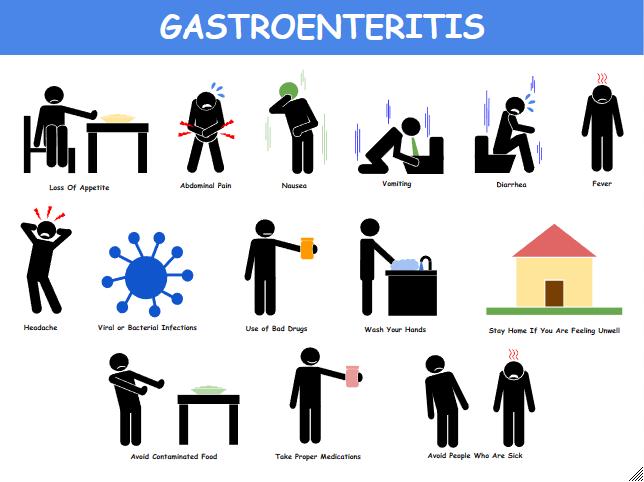
Norovirus, also known as the stomach flu or winter vomiting bug, is a highly contagious virus that causes vomiting and diarrhea. It is the most common cause of gastroenteritis in the United States, affecting millions of people each year. The symptoms of norovirus are unpleasant and can be severe, but they usually resolve within a few days. It’s important to be aware of the symptoms of norovirus so that you can take steps to prevent its spread and seek medical attention if necessary.
In this article, we will explore the symptoms of norovirus in detail and provide information on how to recognize and manage this illness.
1. Nausea
One of the first symptoms of norovirus is often nausea. This can be an overwhelming feeling of sickness in the stomach that may lead to vomiting. Nausea is usually accompanied by other symptoms such as stomach cramps and diarrhea.
If you are experiencing persistent nausea, it is important to stay hydrated and rest. You may also consider taking over-the-counter medications to help ease your symptoms.
2. Vomiting
Vomiting is a common symptom of norovirus and can occur suddenly and without warning. It is often severe and can lead to dehydration if not managed properly. If you are vomiting, it is important to drink plenty of fluids and avoid solid foods until the vomiting subsides.
If you are unable to keep fluids down or are experiencing signs of dehydration such as dry mouth, dizziness, or dark urine, it is important to seek medical attention immediately.
3. Diarrhea
Another common symptom of norovirus is diarrhea, which can be frequent and severe. Diarrhea caused by norovirus is often watery and may be accompanied by stomach cramps and bloating.
If you are experiencing diarrhea, it is important to drink plenty of fluids to prevent dehydration. You may also consider taking over-the-counter medications to help alleviate your symptoms.
4. Stomach Cramps
Stomach cramps are a common symptom of norovirus and can be quite painful. They may occur along with other symptoms such as nausea, vomiting, and diarrhea. Stomach cramps can be relieved with over-the-counter pain medications and heating pads.
If your stomach cramps are severe or persistent, it is important to seek medical attention to rule out any other underlying conditions.
5. Fever
Fever is a common symptom of norovirus and may accompany other symptoms such as nausea, vomiting, and diarrhea. A fever is your body’s natural response to infection and may help to fight off the virus.
If you have a fever, it is important to rest and stay hydrated. You may also consider taking over-the-counter medications to help lower your fever.
6. Headache
Headaches are a common symptom of norovirus and can be quite severe. They may occur along with other symptoms such as nausea, vomiting, and diarrhea. Headaches can be relieved with over-the-counter pain medications and rest.
If your headache is severe or persistent, it is important to seek medical attention to rule out any other underlying conditions.
7. Muscle Aches
Muscle aches are a common symptom of norovirus and can be quite painful. They may occur along with other symptoms such as nausea, vomiting, and diarrhea. Muscle aches can be relieved with over-the-counter pain medications and rest.
If your muscle aches are severe or persistent, it is important to seek medical attention to rule out any other underlying conditions.
8. Fatigue
Fatigue is a common symptom of norovirus and can be quite debilitating. It may occur along with other symptoms such as nausea, vomiting, and diarrhea. Rest and hydration are the best ways to manage fatigue caused by norovirus.
If your fatigue is severe or persistent, it is important to seek medical attention to rule out any other underlying conditions.
9. Dehydration
Dehydration is a common complication of norovirus, especially if vomiting and diarrhea are severe. Signs of dehydration include dry mouth, dizziness, dark urine, and decreased urine output. It is important to drink plenty of fluids to prevent dehydration and seek medical attention if you are unable to keep fluids down.
10. Loss of Appetite
Loss of appetite is a common symptom of norovirus and may be accompanied by other symptoms such as nausea, vomiting, and diarrhea. It is important to drink plenty of fluids and try to eat small, bland meals to help manage your symptoms.












